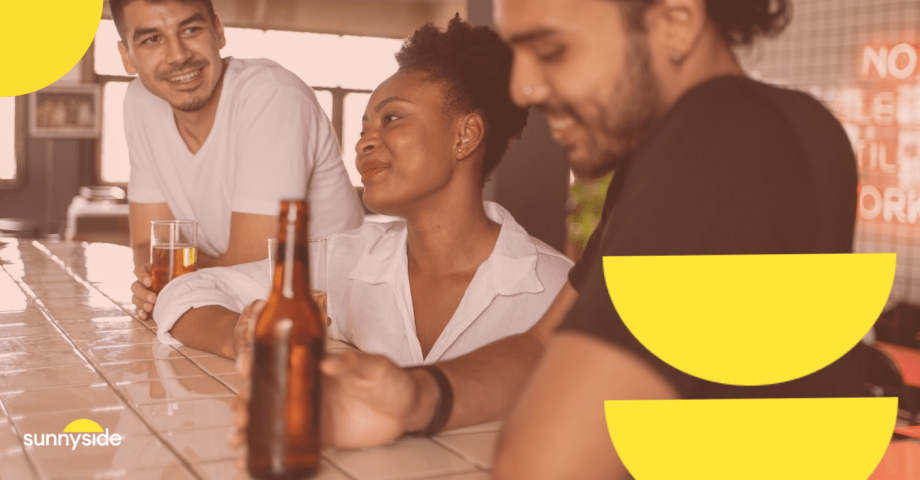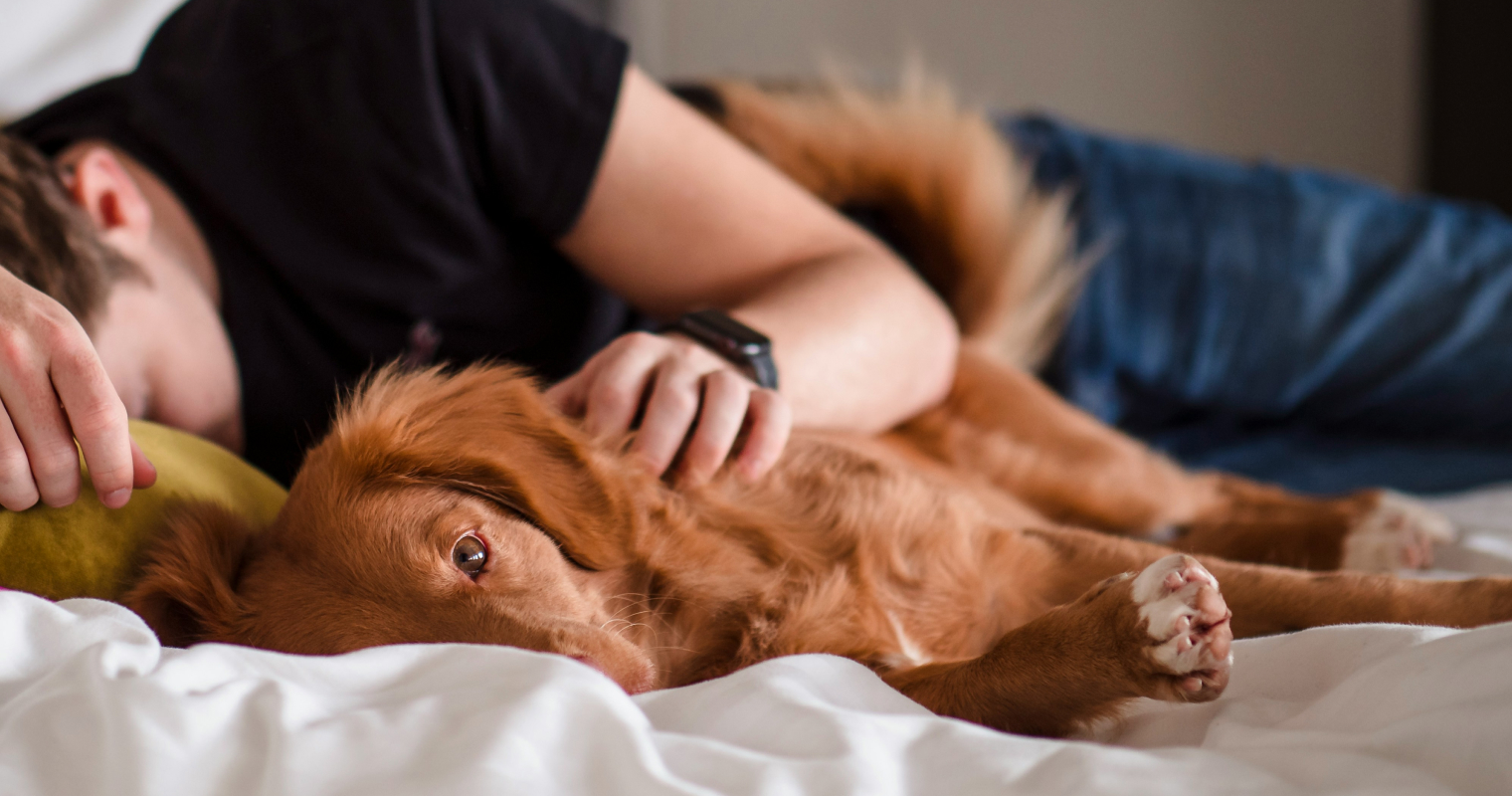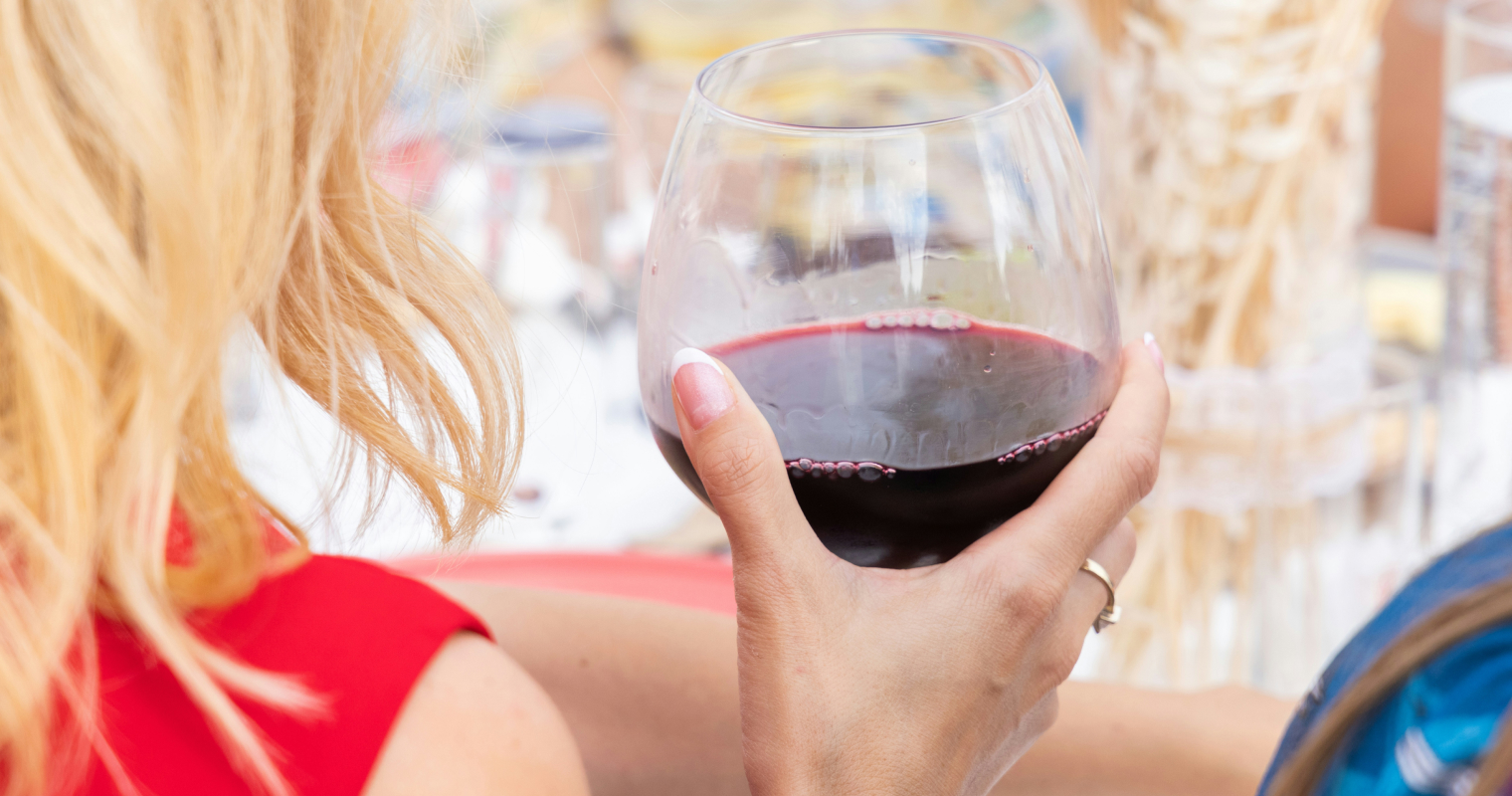Last Updated on May 25, 2023
Most of us have been to parties, events, and social functions that involve some drinking. And if you often drink more alcohol than you’d like at these social gatherings, you’re not alone.
There are common reasons for this. Sometimes, there’s that lingering pressure to keep up with friends who may have a much larger appetite and tolerance for alcohol than you do. At other times, you simply can’t bring yourself to say “no” to a host who loves keeping your glass of wine full.
For many of us, alcohol serves as a social lubricant. However, when a drink helps you feel more comfortable and less anxious, this could sometimes lead to you having a little more alcohol than you’d initially planned. Some of us may also pre-drink in hopes of loosening up before social events, which could also contribute to excessive alcohol consumption.
If you have social anxiety, you may notice that this tends to spiral out of hand. When coping with the fear of social encounters, you might reach for alcohol to dim those feelings of anxiousness. Before you know it, alcohol becomes the crutch you need to function in social situations, at work, or at school.
In this article, we’ll explore how you can tell if you’re a socially anxious drinker and cover tips to stay mindful and drink less in social settings.
Signs You May Have Social Anxiety
You might feel nervous meeting new people or get awkward during large events and gatherings. But social anxiety goes way beyond being a little shy or introverted.
Social anxiety disorder refers to the immense and persistent fear of being judged or scrutinized when you have to be around or perform in front of other people. People with this condition feel that this fear is out of their control, and it usually affects how they function at work, school, and other social settings [1].
You may have social anxiety if you show the following symptoms: [1]
- Sweating, shaking, or trouble speaking around other people
- Fast heartbeat, feeling nauseous, and difficulty breathing when in social settings.
- Going the extra mile to avoid social encounters and interactions
- Feeling extremely stressed and self-conscious in social settings
- Feeling very anxious anticipating social encounters before they even happen
Social anxiety can have a huge impact on how you live, which is why it is easy to slip into unhealthy drinking patterns as a coping mechanism.
The Link Between Alcohol and Social Anxiety
Research has found that those with a higher degree of social anxiety are more likely to experience drinking problems [2].
Based on those findings, people who have social anxiety are more likely to turn to alcohol in social settings to increase positive emotions, such as confidence, joy, and enthusiasm, and decrease negative feelings, such as those of anxiety and fear. They were also more likely to drink alone and engage in pre-drinking before anxiety-inducing events [2].
Alcohol is a common fix to dealing with stress and anxiety because it changes the levels of certain chemical messengers in the brain, leading to depressive and sedative effects. This may help to soothe your nerves momentarily [3]. Thus, drinking alcohol may help you feel more calm, confident, and comfortable in a social setting.
However, this could quickly spiral into alcohol overconsumption since your drinking is fueled by fear, anxiety, and social pressure. As this pattern pursues, you may also find that you need more and more alcohol to be able to function socially and hold conversations.
Are You a Socially Anxious Drinker?
Based on the personal experiences of the Sunnyside community, some of the most common signs and struggles of being a socially anxious drinker are trying to keep up with the crowd’s pace of drinking and pre-drinking before stressful events to loosen up.
Some other signs that you may be a socially anxious drinker include the following:
- Having trouble saying “no” or rejecting your friends’ requests to drink more
- Drinking even when you don’t want to out of fear of being judged or disliked
- Needing to drink alcohol in order to socialize, listen, and talk coherently
- Needing to drink before work or activities that require social interaction
- Binge drinking and having trouble stopping yourself when you’re anxious
How to Stay Mindful and Drink Less in Social Settings
Understandably, dealing with social anxiety can be challenging.
Having the right strategies and an action plan to cut back on your drinking can help tilt the odds in your favor. Mindful drinking is one such practice that empowers you to build healthier drinking habits without having to give up alcohol.
Here are some of the best ways to stay mindful and drink less as a socially anxious drinker.
Set Drinking Limits and Start Tracking Your Drinking
Pre-determined drinking limits can serve as a conscious reminder to drink mindfully. Before any social event, set some drinking limits for yourself. It might also be helpful to have daily or weekly drinking limits in place.
As a helpful guideline, the CDC defines moderate drinking as not more than two drinks per day for men and not more than one drink or more per day for women. You should also avoid binge drinking during events, which the CDC defines as having five or more drinks on any one occasion for men or four or more drinks for women [4].
Feelings of anxiousness can throw off your sense of judgment. So the best way to ensure you stay within your pre-determined limits is to intentionally track your drinking throughout the night. The Sunnyside app provides convenient and easy-to-navigate drink-tracking tools to help you do just that.
Replace Alcoholic Beverages with Lower-Alcohol Alternatives
If sipping on a drink helps soothe your nervousness, you may consider replacing alcoholic beverages with lower-alcohol alternatives. This is a great way to ease off the booze without going teetotal for the night.
Bitters and soda is a popular go-to for those who want lower-ABV drinks. You could also order a club soda and mix it with your wine to create a spritz or add juice to sparkling wine to get a lower-ABV cocktail. Alternatively, you may simply ask for a lower-alcohol version of your favorite cocktails from the bartender.
Alternate Between Water and Alcohol
If you constantly need a drink in hand or something to sip on during events, you can alternate between water and alcoholic beverages throughout the night. This is one of the simplest methods to pace your drinking in social settings.
Alternatively, you can have a snack between drinks and make it a point to put your glass down after each sip. It’s also great to have a one-hour timer set on your phone and limit yourself to a drink an hour during events.
Start Small and Bring a Friend Along
Huge parties and events can feel overwhelming, whether you have social anxiety or not. What might help is starting small. You may gradually introduce yourself to anxiety-inducing situations by starting with smaller hangouts.
Some other tips to help you tackle social anxiety during social events are as follows:
- Bring a trusted friend along. You can also inform them of your drinking limits so they can help keep an extra eye on your alcohol intake.
- Make a plan to leave the event earlier. This can help you limit your drinking and reduce the pressure of having to stay longer than you’d like.
- Try to steer your focus to what people are saying to you rather than what they think of you.
- Come with a few conversation starters prepped. You can rehearse a few of these lines before the party for a confidence boost.
- Read posts and seek advice from an online community of mindful drinkers, like the Sunnyside Mindful Drinkers Group, before heading off to an event.
Practice Self-Care After Social Events
Social anxiety can be challenging to live with, so you deserve to show yourself all the patience, compassion, and kindness you can.
After a social event, especially a stressful one, treat yourself (in a way that doesn’t involve alcohol). That may look like taking a warm and long bath, getting a box of chocolates, or ordering a nice takeaway dinner from your favorite restaurant.
Seek Professional Help
It’s best to seek professional medical advice if your social anxiety is getting in the way of your career, education, or relationships.
Social anxiety is a highly-treatable condition. Your healthcare provider will be able to recommend therapy, medications, or a mix of both to tackle your symptoms of social anxiety. Social anxiety treatment, in turn, may also improve your relationship with alcohol in the long run.
Get a free trial of SunnysideThe Sunnyside Solution for Socially Anxious Drinkers
Sunnyside is a mindful drinking app that utilizes proven habit-change techniques to support people in building healthier drinking habits. If you’re a socially anxious drinker, Sunnyside can help you foster a healthier relationship with alcohol in various ways.
The app provides drink-tracking tools that offer a convenient and simple way to track your drinking daily and during events. You’ll also receive weekly personalized action plans to help you sustainably cut back on your alcohol intake and achieve your wellness goals.
The app also serves as an accountability partner in your pocket, not to mention that you’ll gain access to real-life coaches who can support and guide you along your journey.
Sign up for Sunnyside’s 15-day free trial today!
References
[1] https://www.ncbi.nlm.nih.gov/pmc/articles/PMC181152/
[2] https://www.ncbi.nlm.nih.gov/pmc/articles/PMC6803072/
[3] https://www.ncbi.nlm.nih.gov/pmc/articles/PMC2814297/
[4] https://www.cdc.gov/chronicdisease/resources/publications/factsheets/alcohol.htm




